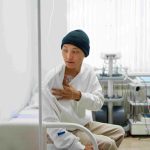By Zakwan Khidzir
The battle against cancer is intensifying in Malaysia, with alarming statistics painting a picture of a rising national health challenge. At the Oncology Nutrition Conference 2025, a collaboration between Hospital Kuala Lumpur and the National Cancer Society of Malaysia (NCSM), Dr Ros Suzanna Ahmad Bustamam, National Head of Services, Radiotherapy and Oncology, Ministry of Health, delivered a powerful talk on “Fuelling the Fight: How Cancer Alters Metabolism and Nutrition”.
She challenged the audience to look beyond traditional treatments and recognise a fundamental truth: nutrition is not merely a supportive measure but essential in the fight against cancer.
The alarming cancer landscape in Malaysia
Dr. Ros Suzanna began by outlining the urgent state of cancer in the country. She shared data showing cancer as the fourth highest cause of death in Malaysia in 2022, a significant increase from the previous year. The Malaysian National Cancer Registry recorded over 168,000 new cases between 2017 and 2021, and this number is projected to double by 2040. The nation’s top five most common cancers—breast, colorectal, lung, lymphoma, and liver—account for more than half of this burden.
She brought this reality into sharp focus by stating, “The risk of getting cancer is one in eight. It’s you and me who are at risk of getting cancer before the age of 75 years old.”
A particularly worrying statistic is that over 60% of cancer cases are diagnosed at late stages, significantly reducing the chances of a cure and increasing the complexity and cost of treatment. Dr Ros Suzanna stressed that early detection through screenings is crucial but also highlighted the need for a holistic approach to care that addresses the profound impact of cancer on the body’s metabolic and nutritional state.
Cancer as a metabolic disruptor
Dr Ros Suzanna explained that cancer is not just a localised disease but acts as a systemic metabolic disruptor. Unlike the intricate and balanced metabolism of healthy cells, cancer cells hijack the body’s metabolic processes for their rapid proliferation and survival.
This phenomenon, known as the Warburg effect, or aerobic glycolysis, is a hallmark of cancer. She explained that cancer cells preferentially convert glucose into lactate for energy, even when oxygen is available.
This metabolic reprogramming creates an acidic tumour microenvironment that promotes metastasis and the growth of new blood vessels. This effect is so pronounced that it is used in PET scans to detect cancer by identifying areas of high glucose consumption. The immense energy drain caused by this metabolic shift is a primary factor in cancer cachexia, a devastating condition of severe weight loss and muscle wasting.
The critical role of dieticians and nutrition
Beyond the metabolic changes, Dr Ros Suzanna pointed out that cancer directly affects a patient’s ability to eat and absorb nutrients. Factors such as the physical location of a tumour, psychological distress, and side effects of treatment like altered taste (dysgeusia) and loss of appetite (anorexia) can make it difficult for patients to maintain proper nutrition.
The resulting malnutrition is linked to higher morbidity, poorer tolerance of treatment, and shorter survival. This is where the role of dieticians becomes indispensable.
She called for a greater understanding of these metabolic shifts, positioning dieticians as crucial partners in patient care. “Oncology cannot work alone when handling cancer patients. We need your support because dieticians are our crucial partners to address fundamental aspects of the disease journey.” She also added, “Beyond medical treatments, nutritional support significantly impacts patient well-being, treatment tolerance, and also quality of life.”
She further stressed that a multidisciplinary approach with individualised plans is essential for managing symptoms and providing the necessary nutritional support. With cancer cases on the rise, she emphasised the urgent need for more dieticians to meet the growing demand.
A call for collaborative care
Dr Ros Suzanna concluded by underscoring that cancer’s impact on metabolism and nutrition is complex and multifaceted. It requires a sophisticated interplay between oncology and nutritional support to achieve the best patient outcomes.
Nutritional support is not a “nice to have” but is a must-have for improving the quality of life and treatment of the cancer patient. By empowering patients with the right nutritional guidance and interventions, the healthcare community can help them withstand the rigours of treatment, maintain their strength, and significantly improve their overall quality of life.





